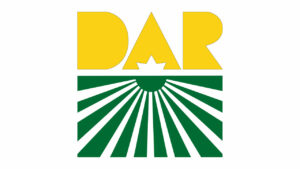Applicable or not?

QUESTIONNAIRES, surveys, and applications for employment or visas have certain items that are not applicable to certain respondents — Have you ever been convicted of a crime? After the answer in the negative, follow-up questions (How long was your jail sentence?) are deemed “NA” (Not Applicable).
Pollsters and researchers make sure of their sample’s qualification to answer certain questions by adding a default box to tick “NA” (Not Applicable) — When was the last time you ran for office? — last three years, last six years, over a decade… NA.
Here’s the rub. The self-assessment on applicability leaves it to the respondent to determine his own eligibility to respond. Also, a person qualified to answer may opt to simply check the NA box, especially when dealing with inconvenient facts.
Applicability is not limited to questionnaires. They are even more appropriate for rules and regulations. The usual assertion that “no one is above the law” is about as reliable a statement as— that tax issue is still unresolved in the courts.
Here are some examples of rules that are “not applicable” to certain groups.
There are now special lines for senior citizens and persons with disabilities for some counters like property tax payments, fast food counters, and vaccinations. This non-applicability for certain sectors of the queueing rule on a first-come/first-served basis is now accepted.
Even in theme parks there are certain premium passes for VIPs that allow the visitor to enter through a back entrance and avoid the long queue outside. Premium tickets are also made available by airlines allowing business class passengers to wait in a shorter line at the counter, have wider leg space in the plane, and bigger baggage allowances.
The suspension of applicable rules can be temporary and may depend on one’s current position. The simple rule of wearing an ID inside corporate premises is routinely waived for senior executives. The habit of walking around heedless of ID restrictions comes home to the individual who has retired from the company he is dropping by to visit for coffee. (Sir, can you sign in and leave your passport and wallet.) This is also true of members in a proprietary club who have already sold their shares but insist on standing around in the lobby to be rescued and treated by friends who are still members.
It is the sign of a country’s advanced level of development that rules are seen to apply equally to everybody from top to bottom. This universal principle of applying to all citizens without exception leads to equal access to government services and greater efficiency.
Simplification of rules and application of these rules to everyone is the effort being undertaken to improve “ease of doing business” here. It also raises our competitiveness with other countries.
There should only be one line. If nobody can jump the queue for a taxi or tax refund, it is easier to plan and introduce systems that eliminate human intervention and dispense with “VIP handling.” In the queuing for bank services, a computer just coughs out the next number in the queue, and does not discriminate on attire, face mask, and escort. (Number 603 to Teller #5.)
Corruption starts with providing exemption from the rules like the proper payment of taxes or showing up for a job interview. The rationale for graft rests on the simple notion that in exchange for power (including by affinity) or money (larger sums for larger exemptions and benefits) one is allowed the privilege of ignoring rules or applying non-existent guidelines to one’s enemies.
It was the declaration of war against the “wang wang” (car sirens) culture that distinguished the inaugural address of a past president. That simple policy declared that no one was above the law. Everybody is stuck in traffic or moving smoothly together. Nobody is above the law.
So, when an invitation to be subjected to media scrutiny for the public’s appreciation of qualifications and programs is turned down, is it acceptable to get the reply — Not Applicable to me?
The road to economic recovery rests on the clarity of the rules and ease of compliance to ensure universal application. Can candidates make a pact and declare as their motto — I will apply the rules to myself first? (Can we put payment of taxes at the top?)
Those who find this simple declaration of compliance with valid laws difficult… need not apply.
Tony Samson is chairman and CEO of TOUCH xda




